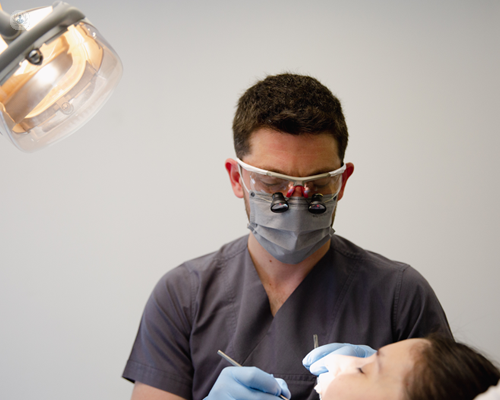Root canal vs tooth extraction: which treatment is better for a damaged tooth?
Written by:If a tooth is badly damaged and the nerves are exposed, it is imperative to treat it immediately to prevent infection. What is the best treatment? Esteemed Oxford-based dentist Dr Amir Mirzaei discusses two potential treatment options; root canal and extraction. He outlines how each procedure is performed and ultimately how the final decision is made on which is most suitable for the patient.

When is root canal treatment or tooth extraction required?
Root canal treatment clinically means shaping, disinfecting, and filling the canal system of a tooth. This treatment is required in order to save a tooth whenever the pulp is infected with microbes.
Extraction means the removal of the entire tooth. There are many reasons and indications for tooth extraction, one of which is extensive decay beyond repair and infected pulp.
Which factors may make a person more likely to require this kind of treatment?
Infection inside a tooth can result in an irreversible severe inflammation of the pulp causing severe pain and ache. Both treatments will deal with the problem and prevent the further progression of the infection and ease the pain.
Sometimes, a tooth can have an infection and/or an abscess under its root without any symptoms. This can have long-term health issues if left untreated. Root canal treatment is the restorative approach to clear out the infection while keeping the tooth. If there are clinical contraindications such as unrepairable decay then extraction is carried out.
Trauma or a fracture of a tooth can result in the exposure of the pulp and the nerve. A situation like this needs urgent care and treatment to improve the longevity and the survival success of the tooth. Often the nerve needs to be removed and root canal treatment to be done. If the tooth is, however, severely fractured, it may not be restorable. Therefore, there is no option other than extraction.
What are the advantages and disadvantages of root canal treatment?
Root canal treatment has been proven to be a very successful and effective therapy in saving an infected tooth. This is often beneficial as the recovery is often quicker than extraction, the feel and the integrity of the tooth remain and it is a less invasive treatment than extraction.
The treatment is, however, subject to high technical ability as very thin and fine instruments are used. The internal anatomy and morphology of the tooth can also be complex, especially with molar teeth. These can result in some being challenging to do well, therefore requiring specialist care, often more costly, and requiring long appointments with the mouth being open for a long period of time.
What are the advantages and disadvantages of tooth extraction?
Extractions are often done if there is no restorative alternative option left for a tooth. These are often shorter appointments, often less costly than root canal treatment, and less technique sensitive.
There are a few days of postoperative pain and discomfort. The space where the tooth is extracted will remain empty, this can result in adjacent or opposing teeth moving over a long period of time resulting in bite changes. If multiple teeth are removed then the quality of chewing can be compromised or will affect the profile of the cheeks or smile.
How is the decision about the best course of treatment made?
Any oral disease diagnosis must be confirmed with your dentist. They have the knowledge and skills to help and guide you through the best option for a clinical situation. Most private general dentists like myself aim to keep teeth for as long as possible and recommend the least invasive treatment. If there are certain complications with oral surgery procedures then root canal treatment will be the treatment of choice. However, there are clinical situations where extraction will outweigh the risks and disadvantages of root canal treatment. Each case has to be assessed and addressed accordingly. It is never a "one size fits all!"
If you are interested in finding out more about either procedure or would like expert advice on whether one is most suitable for you than the other, book a consultation with Dr Amir Mirzaei by visiting his Top Doctors profile.


